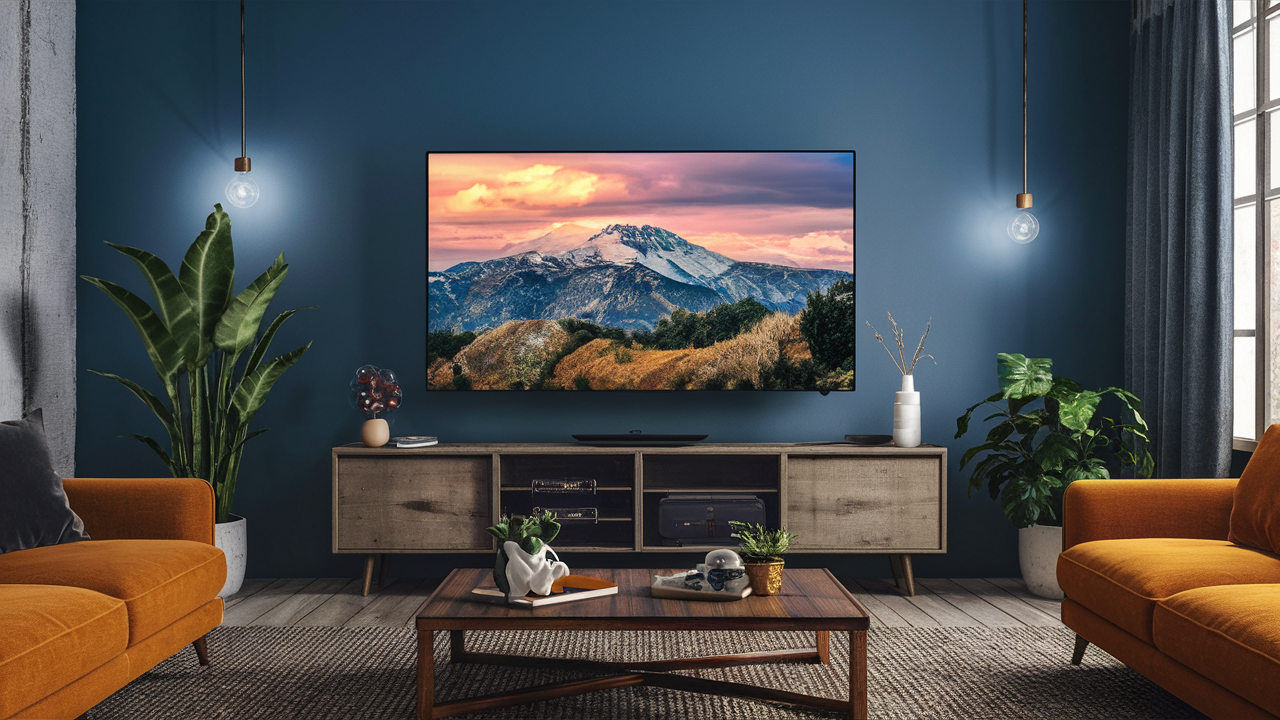What is the Minimum Internet Speed for a Smart TV?

The minimum internet connection speed for a smart TV depends on the type of smart TV and also depends on what the user intends to do with the smart TV.
Most people are now aware of smart TVs which have become very popular in the recent past as people can directly stream movies, shows, music, and other stuff on their TV. However, to be able to use all the functions that a smart TV is endowed with, you need a fairly high-speed Internet connection. Yet, what internet connection speed is needed to make smart TVs operate efficiently? Below is a breakdown of the minimum internet speeds for smart TVs to run optimally.
Why web speed is important for smart TVs?
Smart TVs are not like many other TVs which only receive content from cables or antennas but most of the features that they possess require internet connectivity. Smart TVs connect to the internet to:
- Watch movies, series, music videos, and everything else on apps like Netflix, Hulu, YouTube, and many others.
- Start up app contents, menus, and selections within a short amount of time
- There are no more long periods of waiting between moves in an online game.
- Stream media from other devices through things such as Chromecast's builtin
- Get updates that help software run smoothly, changing bugs and adding new apps/features.
If your internet connection is poor, all these smart features will lag, play videos in low quality, or not work at all. That is why the basic offer of your Internet service provider may not bring the expected quality in operating a smart TV.
Recommended bandwidth for streaming on Smart TVs
In the case of watching videos on Smart TV, the internet service providers advise users to have download speeds of 35 Mbps for a smooth flow. At this speed, you can generally expect:
- Uninterrupted viewing of high-definition video content in 720p or 1080p quality, including Netflix, Hulu, YouTube, and others, but under the condition that only one device connected to the same network is streaming. Increased simultaneity calls for increased availability of bandwidth.
- Rarely any buffering issues with most streamable content.
- It is good enough for simple surfing, social app usage, streaming of music while doing other tasks, etc.
- It would also have the functionality of streaming across multiple devices at once although higher resolutions might not be as manageable
However, 35 Mbps service speed should be considered as the minimum level of bandwidth. Most smart TV owners will always look for internet connection speeds of at least 1025 Mbps to allow for other users/ devices and high video resolutions.
But What About Upload Speed?
While download speed handles most media streaming to your TV, upload speed determines performance for actions like:
- Projections of content to TV from a mobile device
- Multiplayer cloud gaming
- Skype, Zoom, or any other video conferencing possible
Thus, although downloads play a more prominent role in smart TVs, an upload speed of 13 Mbps can allow for a safe margin and enable users to engage in lag-free activities using these features.
Things That Influence Minspeed
There are a few key factors that can alter the minimum internet speed needs for smart TVs:
1. Number of simultaneous users/streams – This is somewhere you will require more speed.
2. Stream Quality: A 1080p video stream can be achieved at 510 Mbps, while 4K video is streamed at about 25 Mbps depending on the stream quality.
3. Type of Content – The kind of content that a viewer is watching has the potential to influence the speed they want for the video, for instance, fast action videos such as sports will need a higher speed than documentaries or cartoons.
Various Recommendations on Enhancing Smart TV’s Performance
If you're struggling with buffering, blurry video, and other smart TV issues here are some tips:
- Go to the specific internet speed test websites on your smart TV and ensure that you are getting the bare minimum of streaming standards. Contact your ISP if the speed is low for a particular website or always low.
- Power off your smart TV and primary router/modem and then turn them back on to free up their memory and eliminate any firmware glitches.
- Plug smart TV directly into your main router using an Ethernet cable so as not to have any issues that result from WiFi interferences. Although the integrated WiFi of smart TVs has been enhanced over a couple of years.
- Some apps and browsing tabs are frequently running in the background; it is good to shut those that are not in use to save on bandwidth as well as memory. Disabling background app refresh is also very effective in reducing power consumption.
Internet Speed for Streaming; What Speed is Right for Streaming?
The internet speeds of 25+ Mbps though the ideal setup for a lag-free 4K streaming across multiple devices, is not necessary for most smart TV features to operate quite smoothly. It will be seen that a constant and dependable 35 Mbps is workable for many families keen on experimenting with fundamental streaming and applications.
However, with internet providers giving out 50, 100, 200+ Mbps packages now – there is no excuse for slow buffering or Full/High Definition quality. If you can spare a few extra dollars for a new smart TV then make sure to do so to give your device the speed it needs!
Ready to upgrade your internet experience? Call us now at +1 844-349-7575 to explore the best Cox Internet plans for your needs!